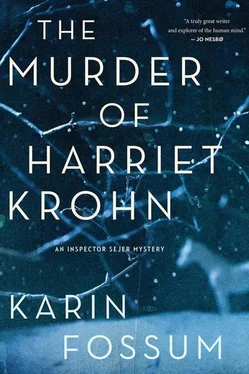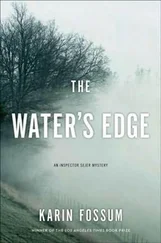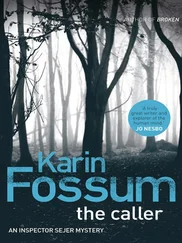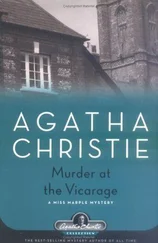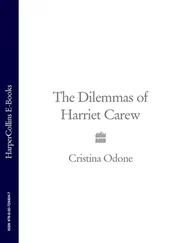Lind’s tone becomes livelier.
“How did you manage it, Charlo?”
“That’s none of your business.”
“Have you completely lost the plot?”
“Don’t you worry about me. Come over right away so I can get this hell over and done with!”
He slams down the phone. He’s swelling with pride; he’s on top of the world. He packs the money in a large envelope and settles down to wait. He glances out of the window and notices that the sun is about to penetrate the layer of cloud. He clutches the envelope. In less than fifteen minutes, he spies Lind’s Chrysler cruising down the street. He sits calmly, waiting for the doorbell. The moment is indescribable. The sound peals through the whole house. He rises languidly, strolls across the room, and opens the door slowly.
Lind, tall and lanky, stands there with his hands in his pockets, looking at him.
“Well, Charlo, things on the move, are they?”
Charlo folds his arms. Looks up at the sky.
“I think it’s going to clear up,” he says, nodding. Lind catches sight of the envelope.
“Is there anything I need to know?”
“Not a thing,” Charlo says evenly. “Take the money and keep your mouth shut, that’s all I ask.”
“What about a little gratitude for the loan?”
“Yes, thank you so much.” He holds out the envelope and bows exaggeratedly like a courtier. “Make sure that people know I’ve paid.”
“What do you mean?”
“You know perfectly well. I’ve heard the rumors.”
Lind opens the envelope and begins counting. The notes are in bundles of ten.
“My, this looks good.”
A grin of satisfaction spreads across his face.
“Naturally. I’m an honest man. And I’m done with every kind of gambling.”
Lind gives him a tightlipped smile. “I won’t believe that until I’ve seen it. But, if you’ve really kicked the habit, good luck to you.”
Lind nods curtly and walks to his car. Charlo watches him leave. Now the sun breaks through in earnest as the car slips out onto the road, and everything is gilded and bright. His head is completely quiet. He goes inside and opens a window. He weighs next to nothing and floats through the rooms. There’s twenty thousand kroner left in the drawer, enough for some small bills. Could that be birdsong he hears through the open window? Perhaps not now in November, but outside someone is whistling cheerily.
The scraped fender seems to leap out at him when he walks toward his car. He drives to an auto accessories shop and goes to the shelf of enamels. He tries to find a shade of red that matches the Honda but can’t decide. Shakes the aerosol he’s holding, hears the pea rattling around inside it. Which is best? he wonders: one that’s too light or one that’s too dark? And what shade of red does he actually require? Plum red, scarlet. He doesn’t quite know, so he hesitates. He decides on the lighter shade. At the counter, he notices the newspapers and buys two different titles. On the front of Dagbladet is a photo of a large bunch of flowers. What a strange front cover, he thinks. There’s something about it that’s familiar; it rings a bell. He picks up the newspaper in horror.
Did you make this bouquet?
Instantly he feels his face stiffen. He can’t believe his eyes. Panicking, he scrambles in his wallet for money, snatches up the papers and the aerosol, and rushes out to his car. Slams the door hard. His heart pounds wildly. They’re already on his tail. No, that can’t be right. But the flowers, what does that mean? He reads the article feverishly.
Look carefully at this bouquet, which was found in murder victim Harriet Krohn’s house at Hamsund. The flowers have obviously been arranged by a professional and were absolutely fresh when the body was found. The police assume that the bouquet was put together by one of the town’s florists, and hope that the person who made this particular bouquet will remember it, and possibly also the purchaser. Investigators are unwilling to go into further details about the significance of these flowers. The bouquet consists of one white lily, blue anemones, sweet peas, and roses. If you think it’s familiar, please get in touch with the police immediately.
He lets the newspaper fall. Horrified, he stares through the window. I didn’t realize they had so much imagination, he thinks despairingly. A bunch of flowers on the counter — why did they attach so much importance to it? He thinks about the young girl at the florist’s and he feels a nasty jolt pass through him. For some reason, he’s certain she remembers him. No. It’s not possible. She couldn’t give a precise description. I look so ordinary, he thinks, so anonymous. But the blood rushes to his head, and when a car pulls up beside him, he ducks down as if he’s searching for something. Perhaps, he thinks, it would be better if I stayed indoors until this blows over.
He puts the car in gear and drives off. The aerosol can rolls around on the floor. His brain is working feverishly. He conjures up the florist’s assistant to see how much he can remember. Concentrates, narrows his eyes. She rises in his mind in all her youthful beauty, her fair braids and red sweater. Her hands, her mouth. The rings on her fingers, her sugary way of speaking. He parks outside the house and goes in. Seats himself at the kitchen table and rests his chin on his hands.
Why should she remember me?
Because you were nervous. Because you had a special glint in your eye.
That’s silly. I was silent and sullen, maybe, but otherwise perfectly anonymous.
Everyone has a distinctive feature. She’s quick-witted, young, and sharp; she’s taken everything in. She’ll obviously recognize the bouquet, because she’s an artist.
But it was right at the end of the day. She must have been tired.
Don’t kid yourself. It’s only a question of time and they’ll be at your door, Charlo. In a murder case, they never give up.
He rubs his eyes hard and thinks of Julie. Perhaps she’s doing her homework now. He can see her quite clearly: that mane of red hair cascading down her back, her face deeply concentrated on her books. What’s that car driving past? A gray Volvo, he’s seen it before. No, it’s only his imagination. Besides, this one’s green. They don’t know who he is. They don’t know where he lives or what he’s done. He leans forward across the table. Listens in the silence. There’s a gentle hum. In the evening, he turns off all the lights, so people will think he’s gone away. I’m lonely, he thinks, but I’m out of debt. The darkness protects and soothes him, broken only by the blue flicker of the television screen.
Uneasiness is there the whole time.
This resentment, this bustle inside his head, disturbs him. He constantly returns to his childhood. The images are so bright and uncomplicated that he enjoys being there. He gradually calms down, remembering his mother, how caring she was and her deep, warm laughter. And his father with his broad shoulders. How did I turn out so weak? he wonders. But in the same instant, he recalls his crime, that he has killed. What strength he’d needed, what courage he’d had to summon to ring Harriet’s doorbell. That he could get himself off his knees and do so much violence. He, who’d never laid a finger on anyone. He remembers her thin face, contorted with rage and fear. And his own fear drove him on, through the series of heavy blows. Panic pushed him over the edge and gave him strength. No, he wants to return to his childhood again; childhood has become a refuge. The present is unbearable; he thinks of nothing except his crime and the collision. It all sticks fast in his mind.
Every time he eats, the food swells in his mouth. He steals a glance at his hands. Haven’t they turned darker? Has he always had such red hands? He closes them and opens them again, thinking of all the links between head and hand. The millions of impulses that make his hands open and close and make his legs walk. What about his heart, he thinks. Does that play a part? No, the seat of wickedness is in the head. He clasps his head with his hands and squeezes. Inside here, he thinks, dropping his chin to his chest, inside here it was growing without my knowledge. From the start, I was weak, and weakness can be genetic. But Mom is strong, he realizes, and Dad was a decent, hard-working man. He stands at the window, looking at all the innocent people. Their hearts are pure. He moves away and goes to the kitchen instead. He’s become a haunter of dark corners. I’ve taken a life, he thinks. And what’s left of my own must be lived in the shadows, alone. I’m paying a high price. Will I ever be able to look people in the eye? Then, with a great effort, he pulls himself together. One important thing remains. He gets his wallet and fishes out a small card with a telephone number. A fence who won’t ask questions. Merely an intermediary, a man he’ll never meet again. It’s a case of sink or swim. We’re in the same line of business, he thinks, this fence and me, and there’s no avoiding it. He stands with his back to the window and dials the number.
Читать дальше
